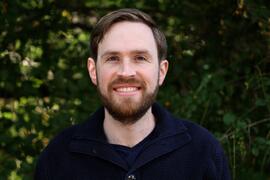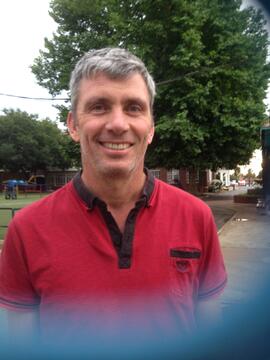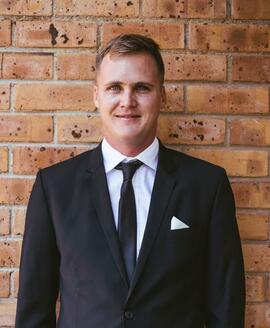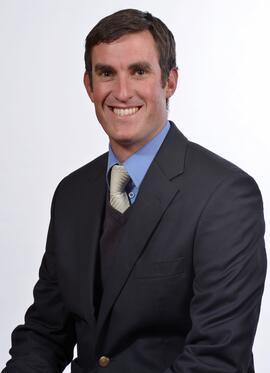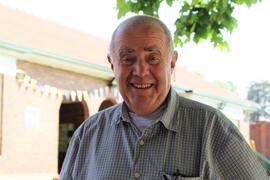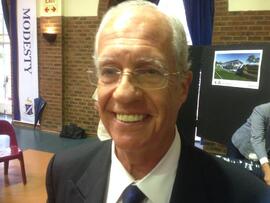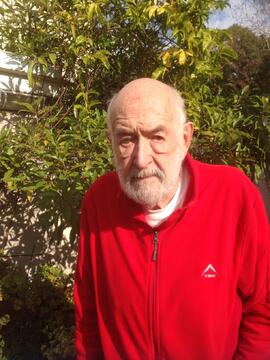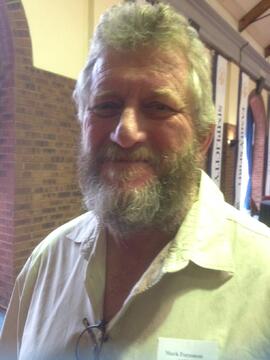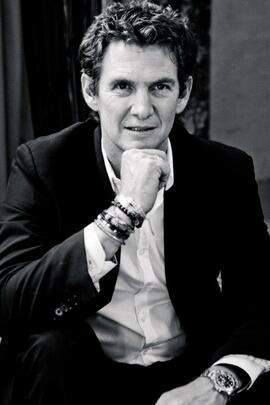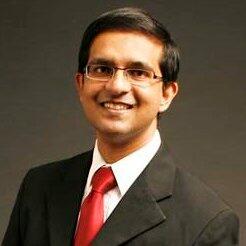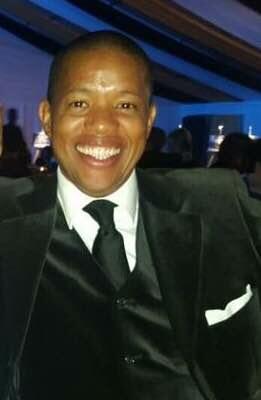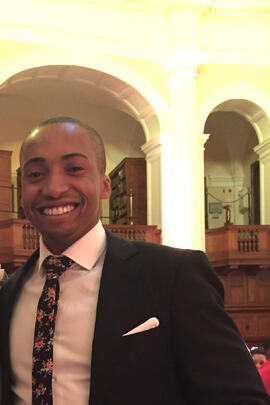Interview with Boris Babaya – 1950
This is actually a transcript compiled by Boris himself which makes for interesting reading
Early years at Marist Brothers Inanda
As the new preparatory school opened in 1941, world war 11 was raging all over Europe. The
German nazi army directed by Adolf Hitler had occupied and annexed Austria, invaded
Czechoslovakia, Poland, France, Holland, Norway, Denmark, Yugoslavia, Albania, Greece then
Hitler attacked Russia and times were desperate for the Allies.
The British resistance suffered numerous setbacks in the Atlantic as German u-boats pounded
their supply convoys relentlessly. The Luftwaffe was bombing Britain and the Royal Air Force
was desperately fighting “The Battle of Britain”.
In North Africa, the British and Commonwealth armies were fighting the Afrika Corps under the
superb General Irwin Rommel.
Times were tough in South Africa. There were shortages of everything due to the prioritising of
so many basics for the Allied troops up North. News from the Red Cross was invariably
obituaries of family casualties in the war.
Japan had attacked the American fleet in Pearl Harbour and the Pacific war was ignited.
The only way one was able to follow events were the crackling short-wave radio, the press and
rare personal mail. There were very few cars, severely restricted by petrol rationing. There was
no white bread, very little meat or poultry, soap, tea, coffee and just about everything the
modern generation finds stacked up on supermarket shelves, was in very short supply.
Against this background Boris came from Braamfontein Convent to enter St. Davids in 1944 to
join std. 1V.
Inanda was on the periphery of Johannesburg. Most of the boys were boarders. They came
from all over the country and there were well represented contingents from Portuguese East
Africa (Mocambique), Northern Rhodesia (Zambia), Angola, Nyasaland (Malawi), Rhodesia
(Zimbabwe) and other arenas.
We were “Day Dogs”. I lived in Parktown on the Killarney border, just behind Parktown Convent.
The main arterial road to Inanda was Oxford Road. The Dunkeld Bus got you to the terminus
just before Corlett Drive. Its’ scheduled times were hourly at peak times. It was precisely one
long mile’s walk from St Davids. If you missed it, you got the bus that turned off at Soggot’s
Corner in Rosebank. That made a very poor start to the day.
The Wanderers Club was right in the middle of Johannesburg adjoining Park Station. There was
one heck of a hullabaloo when the minister of transport Mr Sturrock expropriated their grounds
for a functional Johannesburg station.
There were huge public marches in protest. A rally led by ‘Sailor Malan’, a highly decorated
South African ex RAF fighter pilot Ace, and the slogans on the banners: “Save the Wanderers
for the People”.
I recall my father persuading the Wanderers grounds man, Harry Eden to speak to executive
committee chair, Mr Houliston and tell them that they couldn’t stop progress and that he would
show them where the Wanderers could be relocated. He took them to Kent Park, and showed
them the farm that is the site of the Wanderers Club today.
He predicted that private cars would become far more prolific and that they could get a couple of
buses to ferry long-standing members that just couldn’t commute any other way. The rest is
history.
Standard four was a revelation. The principal was Brother Urban. The class teacher was Mrs du
Plessis. After her first lecture I knew she was an excellent tutor. She was clear, logical and
strict. She knew her syllabus inside-out, she put it over so well one felt like a genius. She
marked one’s homework meticulously. There were no bic pens so one scratched around with
stephens ink and pens with nibs. When one’s mind was in full flow and you were scribbling the
answers speedily, the nib would hit a speed-bump in the paper and droplets of ink would be
sprayed over the page. Miss would painstakingly encircle every single blot with ‘laager’ of red
ink. You knew instinctively that this lady wasn’t going to take any prisoners.
Under her expert guidance History, Geography, English or Arithmetic was just ‘a stroll in the
park’. While watching some hopeful candidates on BBC’s “Who wants to be a Millionaire” one
becomes acutely aware that they never had her as teacher. I recall one Geography test where
just the outline of the world’s land and sea masses were drawn. One had to fill in all the major
mountains, rivers, seas, lakes, countries, oceans and continents. I’m grateful that we were
taught by her.
The other standard 1V class was taught by Mrs Kempster whose class considered her as
another ace teacher.
Sports were highlights. soccer, cricket, athletics and swimming were the sports we all enjoyed.
Like schoolboys universally, our heroes were the more senior guys in standard five and six.
Somehow one seemed not to be particularly aware of one’s juniors.
From the following year, the school would start to become a senior college with an additional
higher class each year thereafter.
There are memories of health scourges. The pasteurisation of milk was not yet an industry norm
and TB or tuberculosis was a dreadful disease. It was an era before antibiotics were available,
so milk was always boiled. Fruit juices were only homemade. The other frightening disease was
polio or infantile paralysis. The papers were full of news about this dreaded disease. Victims
were put in huge contraptions called “Iron Lungs” and it was a terrifying prospect. One of the
popular lads, from Northern Rhodesia was afflicted and we all feared for his fate. Miraculously
he came out of it without any paralysis whatsoever and there was enormous relief. This was
many years before the “Salk Vacine” was developed by an American doctor which effectively
halted the pandemic.
Firm friendships were made, some of which lasted a lifetime. I befriended Michael Rogers who
went on to become a world class cardiac surgeon. He studied with the best pioneering surgeons
in England and America with the likes of Michael DeBakey, Denton Cooley and a couple of
others whose names elude my dysfunctional memory.
Romeo Buffa a classmate was an outstanding sportsman. He was the greatest schoolboy
sportsman we were privileged to see. It did not matter what the sport was. Whether it was
soccer or rugby he was the star player. In athletics or swimming, Romeo broke all the records.
He was a naturally gifted sportsman. Had he pursued any sporting discipline seriously, we were
all certain he should have made the olympic team.
I recall some of seniors of those days, Stan Barale, Frank McGrath, Keith Kennaugh, Errol
Hulse, Hugh Gearing, Ashley Kallos, Phillips, see the complete list at end.
Classmates were A. Lees, B. McGrath, D. Potter, R. Perino, G. Bordani, P. Vieyra, M. Rogers,
C. Leon, P. Cazolet, R. Kippers, G. Pacheo, G. Rethman.
Mr Bishop was the standard V master. He was a strict disciplinarian of Swedish origin and a
good teacher. Mr Hoare took standard V1. He was elderly, preached on many moral issues and
used to take the musical class. Mrs Basson would play the piano and he would conduct the
singing. Half the class was utterly tone deaf and he would weed them out. He explained the
tonic-Sol-fa: do, re, mi, fa, sol, la, te, do. Every song practice Mrs Basson would play four notes
and the class would be asked to call the notes played. Well, you can imagine the answers that
came from the tone deaf. We had one little chap Francois May who was unerringly correct
whenever he was called upon to answer. Some others of the class got it right or partly right
sometimes, but some never ever got a single note correct. Mr Hoare’s patented reaction was,
“Feeble minds”. He administered punishment with a short leather strap, never a cane. His
command was,”Ankles!” then he would dance three steps towards the offender for each stroke
or slap of the strap. It was never painful.
Brother Thomas was the first brother we had as a teacher. He was Irish, had come from Marist
Brothers Koch Street and as usual our spy network had alerted us that he had a short temper. If
you provoked his ire through stupidity you would get a slap. He taught us Geometry and the first
theorem was painstakingly explained with blackboard diagrams.
I can well recall his exposition:
“When one straight line meets another straight line, the two adjacent angles so formed, together
equal two right angles.”
It wasn’t rocket science, but when individuals were called up to the blackboard platform to
explain the proof the atmosphere got very heated. The selected classmate would have a go at
the explanation, messing up the whole logic of the proof. Br Thomas went red faced, wringing
his hands at his sides in an effort to control his temper, his voice rising until one of his arms
struck out like a black mamba, giving the unfortunate, aspiring geometrician a resounding slap
on the head.
He would repeat the whole proof while the class focussed on the elements of the logic,
determined not to be caught out if called up to the blackboard. Over the next few sessions most
of the class were able to master the first theorem but a few would get caught out some time
later. A wary atmosphere prevailed in his class as one didn’t want to provoke ‘n snotklap.
Br Alban prevailed over std. eight. He had played rugby for Western Province prior to becoming
a brother. He coached the first team and was quite an awesome character. He would castigate
miscreants in a derisive tone with words found in no dictionary. He had a seemingly endless
vocabulary of appellations. “You rumagultion!” and “kookiekommer” comes to mind. He was a
heavy smoker of Springbok plain cigarettes, with the ball of his thumb and the two cigarette
holding fingers burnt to a very deep brown, which one never sees these days.
If you were the unfortunate to get the dreaded invitation to come to his rooms, you knew that
you would depart with painful red stripes on your backside. It was a tortuous ritual. If you were a
smoker, he would offer you a Springbok from his pack of fifty. If you demurred, you would get an
extra couple of strokes for being a hypocrite. Of course you had heard this from the lads, but
you were never sure whether they were spreading a false rumour or a real fact. He would
engage you in friendly conversation about all kinds of interesting subjects. This would proceed
amicably until you were convinced he had forgotten about the reason for the invite as the next
class period was only minutes away from the bell. Just as you reached for the door handle to
exit, he would casually ask why he had invited you to call on him. With accelerating stress and
anxiety you would stutter and splutter some meaningless supposition. The inevitable caning was
administered while you frantically hoped it was four and not the fearsome six.
English speakers had a rather pathetic grasp of Afrikaans. He would produce current Afrikaans
newspapers or periodicals and make a student read an article and then render an English
translation. We were terrible. He got us to say the “Our Father” and “Hail Mary” in Afrikaans. I
think I can still do it sixty six years later.
I managed to develop an “opstel” aid. I memorised a few paragraphs of an introduction that I
hoped would indicate some knowledge of Afrikaans. Whatever choice I made from the offerings,
it was my opening shot.
“Dit was a heerlike warm somer’s dag en toe het my vriend Piet en ek besluit om te gaan
visvang.
He took us a couple of years later on a rugby tour to Natal by train to play our brother schools,
the formidable St. Charles Pietermaritzburg and St. Henry’s Durban.
On the train the cigarettes were offered and known smokers dared not be guilty of being
hypocrites. We narrowly beat St. Charles captained by Peter Fricker, if memory serves, yours
truly elated at scoring the winning try. The team thrashed St. Henry’s so the return home was
triumphant. No misdemeanour in transit escaped his purview. Indiscretions of any kind were
dealt with later, sometimes to one’s utter consternation, much later. He had a sixth sense to
detect any transgression.
Br Edwin, later to become principal, took us for History. He was an inspiring teacher. His first
lecture was preceded by his enquiry from the class as to what precisely was History all about.
The class individuals came up with all kinds of inane answers. His brief definition was, “History
is the story of the living past.”
He went on to explain that virtually everything we are, do, think, feel or believe is the effect in
some way or another, the result of what has been done or has happened in the past. We cannot
escape the history of mankind and our planet. It determines virtually every facet of our
civilization, way of life, social interactions and codes of behaviour. It was stirring stuff. One
realised that if one was unaware of one’s history, one couldn’t understand much of what life was
all about.
I was personally fascinated and very proud to win the Marist Provincial Prize in History. (1947)
Due to life threatening illnesses, my memories are like the “Curate’s Egg”.
There are so many memories buried under the mists of times long past.
One Brother made an indelible impression on all his classes. He was an Australian and took us
for Latin. Brother Celestine was an extraordinary personality and an unforgettable character. His
first words to the class were, “Caesar est.” He asked the class to translate. There were no
volunteers. He translated, “I am Caesar.” That became his nickname, Caesar.
He then asked the class to raise their hands if anyone didn’t think they would pass Latin at the
end of the year. Slowly one hand was raised, and then another and then a flurry of several more
hands were raised. Caesar asked them all to stand up. He riveted his challenging stare at each
one turn and said the following.“No one fails any subject that I teach! You will all pass Latin. Do
you understand that?”Each sentence was delivered like a pistol shot, clearly demanding an
affirmative response. Each of the hapless guys had to clearly state that they would pass Latin.
That was our introduction to Caesar.
He appointed a dog walloper. His duty was to order a class member to clear the blackboard
whenever necessary. If the dw wasn’t alert enough to anticipate the function timeously, he had
to do it himself with Caesar’s derisive comments ringing in his ears.
Sooner or later everyone was bestowed with nickname by Caesar. This ‘christening’ was always
a ritual. A very popular boarder was a regular prolific smoker. Smokers resorted to all sorts of
subterfuge to camouflage their indulgence. A popular habit was to stroll to the young trees
bordering the Fricker Road perimeter, using the meagre foliage to screen their actions. Light up
there, ambling along carefully exhaling the thinnest possible stream of smoke to as to be almost
imperceptible from even a few metres away. One day Caesar related the story at length of how
St. Francis would speak to the birds in the trees. The punch-line was that we had a modern day
St. Francis in our midst. He then asked the guy, “When you go to sneak a smoke in the trees
what do you converse with the birds?” After embarrassed shuffling and stuttering, the fellow was
thereafter always called ‘St. Francis’ by Caesar.
Caesar could start a lesson with a joke. This could carry on for almost the entire period, with
much top of the desk banging by the class when the punch line was delivered. At a minute hand
signal from Caesar the applause would abruptly stop. In the remaining time Caesar would get
through the lesson, set the homework and woe betide anyone that didn’t master the assignment
by the next lesson.
I recall a joke that lasted a good thirty minutes. Two musician pals would go for drinks after their
performance. When they would overdo it, they had to give their respective wives an explanation
for coming home at such a late hour. As the explanations were often not convincing, they
decided to invent a good story while sober that would ensure peace and quiet when
overindulgent and very late. They came up with the alibi of having to practise “Syncopation”.
They swore it was the truth and the wives believed them. This worked for a while until the two
wives got together and eventually they discussed the alibi story. Since both were curious they
mooted several musical probabilities and eventually decided to look it up in the dictionary. What
they found there illuminated the scenario. syncopation: An erratic wandering from bar to bar.
One guy that regularly bunked school and was a hopeless mess, was kicked out of Caesar’s
class permanently. The rest of the class passed Latin. Caesar played an excellent game of
tennis. Years later we discovered that he was an excellent rugby player.
Ellis Park was the venue for both provincial and international rugby and cricket. In 1947 we had
the thrill of viewing the first post war visiting All Blacks. Captained by Fred Allen they had been
preceded by reports of being a powerful team. We had no idea how well the Springboks would
fare. I recall the All Blacks winning their scrum and the ball was passed to the centres. Then
there was a huge collision. The Springbok centre ‘Tjol’ Lategan tackled the Kiwi centre with
such bone crunching force that he was dazed when he staggered to his feet. The crowd went
wild and we knew the ‘Boks would give a good account of themselves. They did. Sitting on the
grass embankment at Ellis Park, eating naartjies was such great fun.
The great Australian cricket team also treated us to the thrilling sight of the two fastest bowlers
in the world, Ray Lindwall and Keith Miller. What a pair to face. Ray was arguably the greatest
fast bowler ever in Test Cricket.
Notable scandal making for yards of headlines was the death of a young lady, ‘Bubbles’
Schroeder. She had been to a party and there had been intimacy with certain well known
society lads. Her dumped body was discovered in the bushes of a dense forest of trees in Kent
Park very near the Dunkeld bus terminus. The post mortem had shown that she had choked on
sperm. Col. Ulf Boberg was the chief investigating officer and the proceedings of the
subsequent trial made sensational, lurid details daily in all the local press. All schoolboys were
intensely interested in the drama, avidly following the court evidence daily. Dictionaries were in
prolific use.
On Thursdays the overseas mail was regularly due at the CNA in Rosebank. The two most
sought after publications were “The Champion” and “The Triumph”. My favourite character was
Rockfist Rogan the RAF fighter pilot Ace and heavyweight boxing champion of the RAF. His
daredevil exploits in the air and taming of bullies was a great source of weekly, thrilling reading
matter.
I was of pure Croatian descent from the Dalmatian province born in Johannesburg. Virtually all
local Dalmatians made their own wine. They never reported it for formal, official assize. My
father used to purchase the whole day’s consignment of wine grapes on the old Newtown
market auction, if he considered them up to his high, quality standards. It would number many
hundreds of two-handled wicker bushel baskets.
As a kid I would be left to guard them while he went to phone the Dalmatians alerting them that
the wine grapes were there and they should come to collect them post haste.
The grapes would be ‘pressed’ through a wooden, roller mangle and fermented in oak barrels.
In due course the wine would mature and then carefully taste tested. If the old man felt the wine
was below par, it was relegated to be distilled as brandy (Rakija). This was very bad news for
me as I would thereafter have to spend many hours in the cold basement minding the still. The
heat applied to the still had to be just right. This was evidenced by the rate at which the brandy
dripped from the still. The correct flow was tortuously slow, about one drop every three or four
seconds. Any flow faster and the still would “burn”. If this happened, the still would be
irrevocably ruined, thereafter imparting a burnt flavour to the liquor distilled in it.
Many years later on visits to Eastern Transvaal distilling farms, I never once found a distillate
such as mampoer or any other that didn’t have a distinctly burnt flavour.
It is a Croatian custom to drink wine with every meal. The young drink it as “Bevanda”, that is,
very diluted with water. My father’s “Konoba” or sunken basement under our home always had
many dozen bottles of home-made wine.
The Portuguese boarders at St. David’s were brought up in similar fashion so they were keen to
get some wine to enliven up their smuggled snacks. I understood their sentiments and would
occasionally get a couple of bottles of wine from my dad’s “Bootleg Stock” for their special
celebrations.
One fateful Saturday when we were due to play rugby against the very tough Krugersdorp,
Monument High School, I arrived at St David’s with my kit and a couple of bootleg wine bottles
enclosed in rugby socks in the tog-bag. Brother Bartholomew stopped me from boarding the bus
and ordered me to report to Brother Edwin in the principal’s office with my kit-bag.
I knew there was serious trouble brewing. The wine was discovered, I was told there was no
rugby for me and a plethora of opprobrium was heaped upon me. My father and Brother Edwin
had a meeting on Monday and peace was restored.
Dad strongly asserted that “English Culture” was not yet appreciative of some of the finer habits
in life like good wine with good meals.
The matric dance was a highlight of the final year. In those days there were very few guys that
had girlfriends. Boy/girl relationships were fantasies. A guy would write a poem and secretly
admire a young lady from a distance. A distinctly victorian ambience prevailed, so the main
hurdle was getting a partner for the dance. If one had some tenuous connection with a source of
girls, like one’s sisters or cousins friends, one was expected to negotiate a partner for pals for
the occasion. Having a Parktown Convent connection I did my duty wherever I was able to do
so. One lass I contrived to persuade to come as a partner for one of the most popular guys
became a rag queen at Wits. My partner was a stunning beauty, the sister of a friend from
Marist Observatory. He and I still meet twice weekly.
Although I had colours for four different sports viz. rugby, athletics, boxing and tennis and was
top of the academic class for many of the years, I was never awarded the merit scroll so never
qualified for the colours blazer, neither was I made a prefect.
On the last day of school, I auctioned all my numerous sports scrolls and pinned my de-scrolled
blazer to the matric blackboard. This gesture attracted further opprobrium from the principal.
After being invited to play in the traditional old boys rugby game the following year, Stan Barale
the captain had to phone me to tell me that I was barred from playing and not welcome to attend
as spectator.
After leaving St David’s, Boris graduated with a BComm (Economics and Business Finance)
after a jaunt in mining on the copper belt of Northern Rhodesia.
Needless to say, he did not send his two sons to St. David’s. He sent them to Michaelhouse.
His daughter sent his grandson Matthew Maguire to St. David’s whence he matriculated
JLE April 2013
Classmates continued – Romeo Buffa, Gorgon Rethman, Brain Magrath, Michael and Gerald
Rogers, Errol Hulse, Achilles (Ashly) Kallos, Tommy Williams, Pat Spencer, Phillipe and Jacque
du Buisson, Setty Risi, Louis da Cruz, Jorge Pacheo, Dion Herbet, Bobby Perino, Jackie Att,
Brian Kennedy, Forrester, Patrick Sater, Owen Simms, Fettis, Hugh Gearing , Bruce
Eshner,(Gymnast), Theo SYtsema, Clive Seff, Guido and Sandro Boroni, Socrates Vartsos,
Francois May. Clive Leon, 2 Kippen cousins, Howard Neyans (yank), Muller brothers, Mark
Madeyski, Paul Vieara, Peter Cazalet, Wilson.
Comment [BB1]: Addition of the
“bootlegging episode

